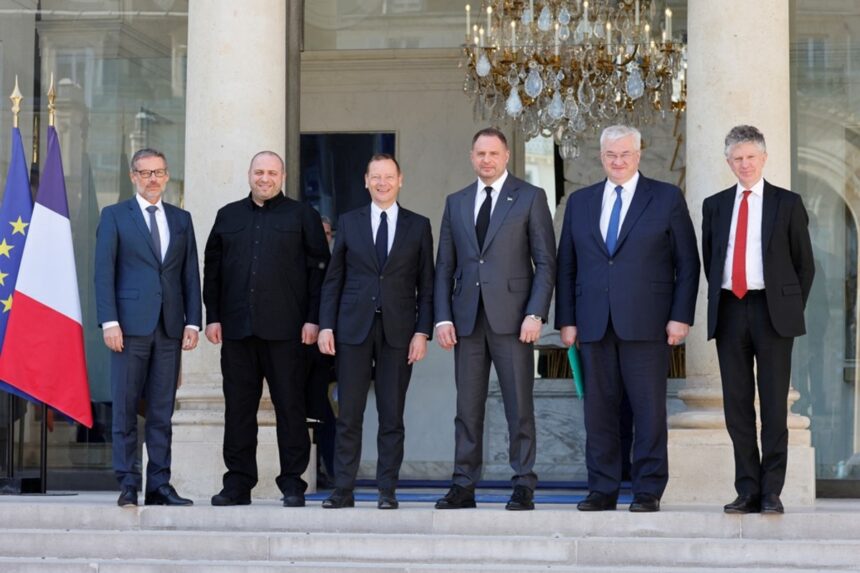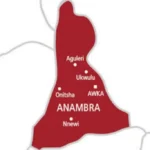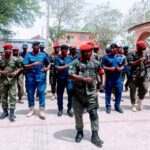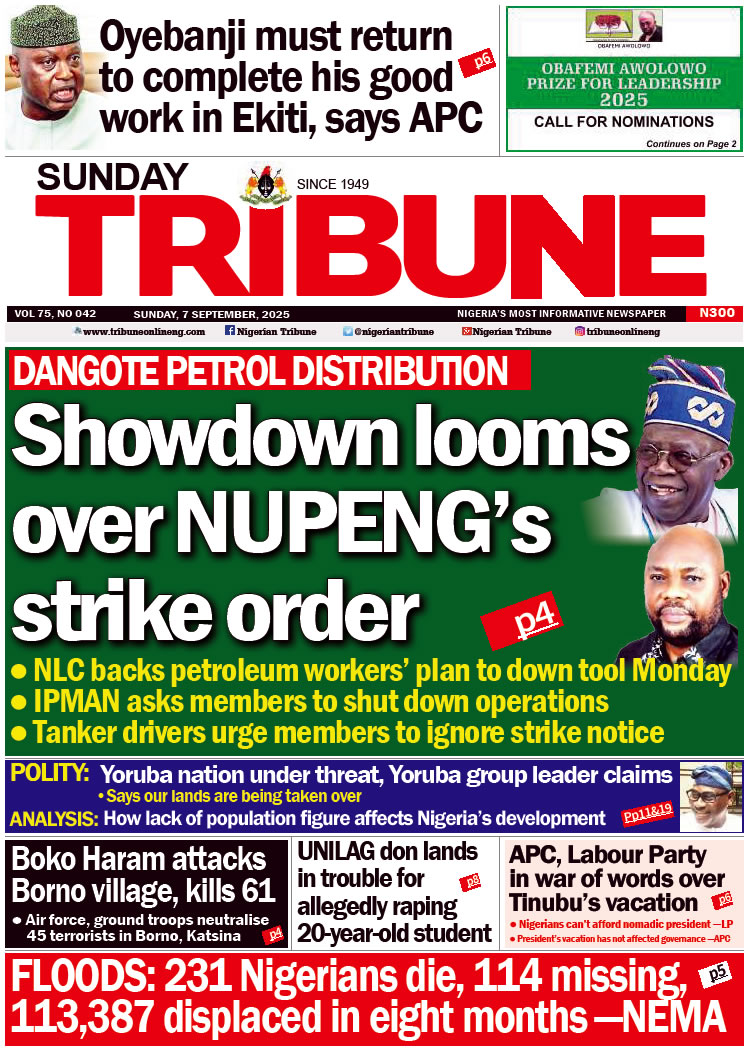…US, EU hold talks in Paris
US Secretary of State Marco Rubio and special envoy Steve Witkoff are in Paris for key talks on Ukraine, joined by officials from France, Germany, the UK, and Ukraine.
According to Andriy Yermak, President Zelenskyy’s top aide, the discussions focused on achieving a “just and lasting peace,” a potential multinational security presence in Ukraine, and new long-term defense architecture.
While diplomacy continues, President Zelenskyy said Ukraine has evidence that China is supplying Russia with artillery and gunpowder. He also claimed Beijing is helping Russia with weapons production.
Zelenskyy revealed Ukrainian forces recently encountered six Chinese fighters in eastern Ukraine and captured two of them. “Our forces fought six Chinese soldiers and two of them had been taken prisoner,” he said. Kyiv has asked China for an explanation.
Zelenskyy added that a US-Ukraine minerals deal could be signed during a virtual meeting on Thursday. The deal, backed by Donald Trump, would let the US share in Ukraine’s resource profits as payback for earlier military support.
He also accused US special envoy Steve Witkoff of “spreading Russian narratives” after Witkoff met Vladimir Putin in St Petersburg last week.
Meanwhile, Russia has warned Germany that it would be entering the war if Ukraine uses German-supplied Taurus missiles against Russian targets.
The warning comes as incoming Chancellor Friedrich Merz supports the transfer of the long-range missiles—something outgoing leader Olaf Scholz had refused to approve.
On the ground, Russian attacks continue to escalate. Drone strikes overnight killed three in Dnipro. Two more died in Nikopol, and one in Kherson. Emergency crews worked through the day to handle fires and destruction.
Italy announced it will reach NATO’s defense spending target of 2% of GDP this year, using accounting changes. Prime Minister Giorgia Meloni is in Washington for talks with Donald Trump.
Military analyst Professor Michael Clarke said it’s unlikely Vladimir Putin will face justice for war crimes. “The chances of Putin appearing at The Hague are very remote,” he said. “That doesn’t mean it’s not worth doing… it is important to the principle of law.”
Hamish de Bretton-Gordon, a former British Army commander, said economic pressure—particularly oil tariffs from the US—could bring Putin to the table.
“If oil… drops to a price where he can no longer [fund the war] and Trump has the ability to do it… I think that would bring Putin to the negotiation table,” he said.
And in a historic shift, the Czech Republic declared full independence from Russian oil. Prime Minister Petr Fiala credited expanded supply through the Transalpine Pipeline via Italy, Austria, and Germany.
“For the first time in history, the Czech Republic is completely supplied by non-Russian oil,” he said.
(Sky News)
WATCH TOP VIDEOS FROM NIGERIAN TRIBUNE TV
- Let’s Talk About SELF-AWARENESS
- Is Your Confidence Mistaken for Pride? Let’s talk about it
- Is Etiquette About Perfection…Or Just Not Being Rude?
- Top Psychologist Reveal 3 Signs You’re Struggling With Imposter Syndrome
- Do You Pick Up Work-Related Calls at Midnight or Never? Let’s Talk About Boundaries






